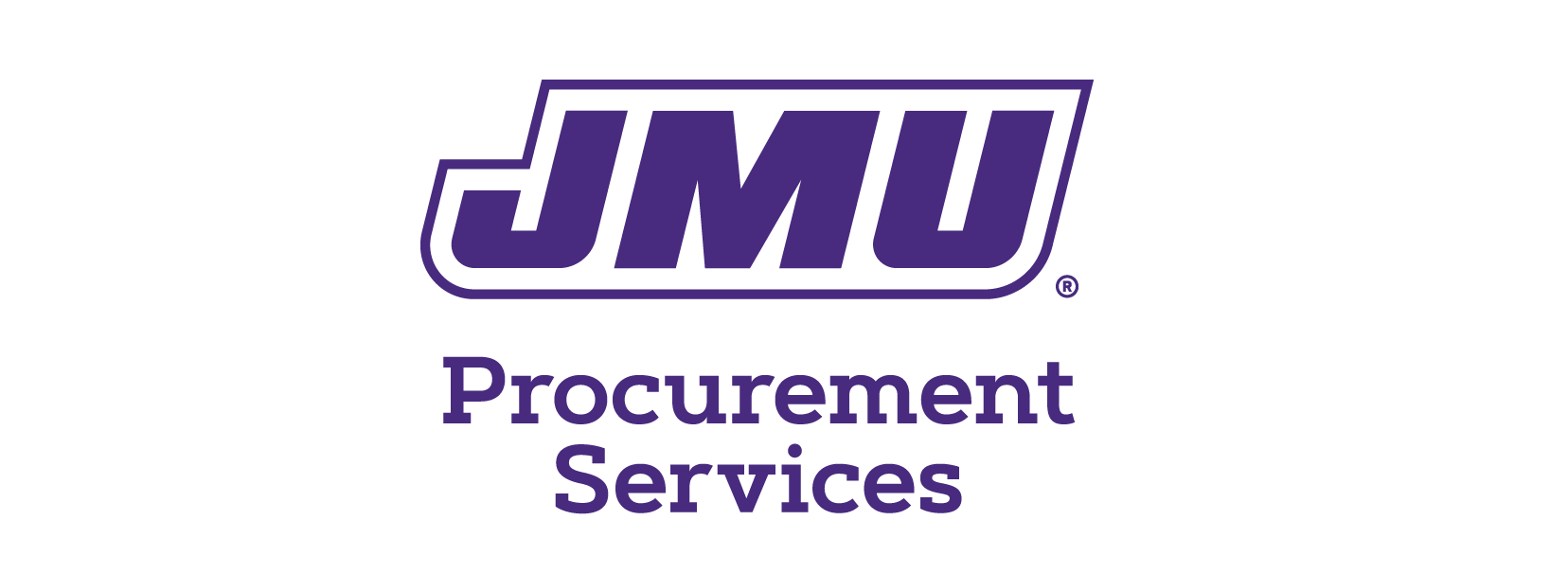Departments wishing to enter into a contract for products, services or equipment should first contact the Procurement buyer responsible for that particular commodity area.
Procurement Staff & their Assigned Commodities
Departments can also contact the Procurement Services reception desk at 540.568.3145 if they are unsure of which buyer to contact. Procurement Services will review and research the department's need and determine if an existing contract is available.
If there is no active contract available, the Procurement Services buyer will assist the department in determining the best method of procuring the needed good or service. If a new contract is needed, Procurement Services will facilitate the establishment of such contract.
Typically, Procurement Services will use the Request for Proposal (RFP) method when establishing a contract. The RFP process allows the University to evaluate cost, quality of goods/services, methodology for providing the goods/services, and the experience of the offeror. Procurement Services also evaluates offerors for SWaM certification.
Participation on an evaluation committee is an important assignment. The evaluation committee ultimately assists in determining the vendor(s) that will contract with the University. The committee is responsible for helping to ensure that the University selects the vendor that offers the best product, service, solution, and pricing while allowing for an open, unbiased, and ethical procurement process.
Once a solicitation has been formally issued by Procurement Services, communication with proposed vendors is not allowed. Evaluation committee members, and other pertinent parties that are contacted by a proposed vendor, shall refer that vendor to the Procurement Services buyer handling the solicitation. Inquiries and communications with the proposed vendor shall not occur with other members of the evaluation committee.
Evaluation committee members are required to be present at all committee meetings and be present at all vendor demos in their entirety. Participation is essential and all personnel should consider their schedules prior to committing to the evaluation committee.
Procurement Services will provide all evaluation committee members with instructions and copies of all proposals received. The members will receive communications that inform them of the time and place the proposals will be available for pick up.
Evaluation committee members are responsible for the review of the Conflict of Interest Policy before agreeing to serve on an evaluation committee.
Insurance is required for most University contracts, which includes workers' compensation, employer's liability, and commercial general liability insurance. The minimum insurance requirements are determined by law and are included in the University's general terms and conditions. Stipulated insurance must be obtained by the vendor prior to contract award and be maintained during the entire term of the contract. An institution may require that the contractor provide the certificate of insurance prior to the provision of any goods and services or the commencement of any work.
Once a contract(s) has been awarded, Procurement Services will assign a Contract Administrator who will be responsible for the administration of each contract on the campus departmental side. The role of the Contract Administrator is an extremely important aspect of any contract ultimately being successful. Contract Administrators have multiple roles and responsibilities related to the contract(s) they administer. Some examples of a Contract Administrator’s responsibilities will be filling out yearly contract evaluations authorizing Procurement to proceed with contract renewal, contacting Procurement Services when a modification is needed, communicating with the Buyer leading up to contract expiration about future plans and making sure the transition goes smooth when the contract expires or another vendor comes in. The Contract Administrator is not alone in the process, however; they do have the assistance of other resources in their department and in Procurement Services.
Contract Administrators are expected to:
- Read the contract.
- Identify critical clauses and terms and conditions.
- Read the contract administration designation letter.
- Identify team members and understand responsibilities.
- Know your own responsibilities and limitations.
- Inspect and evaluate the performance of the contractor.
- Coach the contractor when they are out of spec with the contract or purchase order.
- Look and identify needed contract improvements and notify the appropriate parties.
- Initiate remedial action: stop unsafe, harmful or illegal actions.
- Communicate with Procurement Services and with Contractor on a regular basis.
- Check invoices against purchase order and the contract to ensure you are being billed correctly.
- Observe contractor performance and evaluate.
- Track delivery and/or response times throughout the year.
- Document the actions between yourself and the contractor (save emails, contract renewal letters, and any complaints or praise received about that contractor from other university staff).
- Understand what is in the contract and what is included in the purchase order with the contractor.
Contract Administrators shall not make changes to or terminate a contract or supervise contractor personnel. Contact Procurement Services with any questions.

